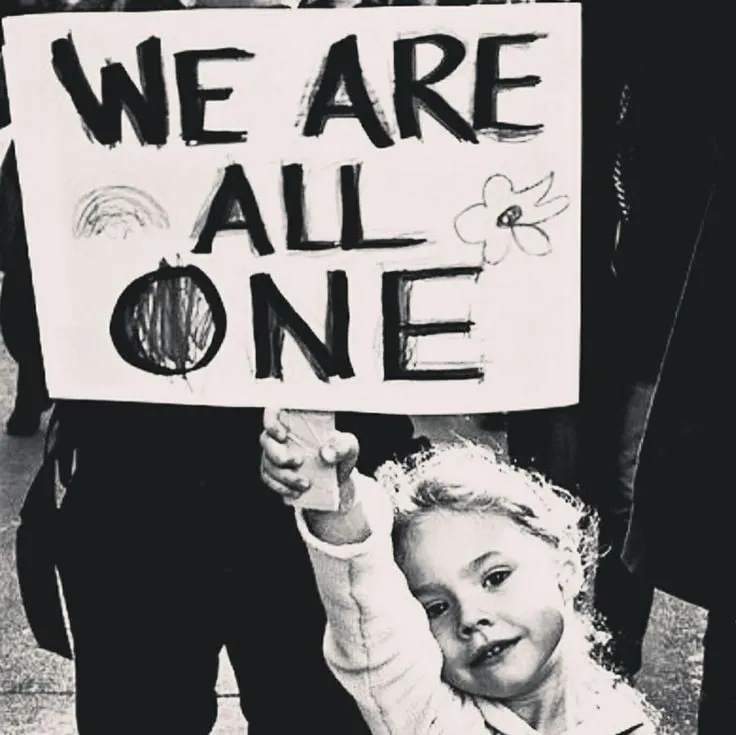Why Has America Become So Self-Centered - And What To Do About It

Everywhere we turn, there’s a sense that "me" culture has taken over. Social media is packed with carefully curated snapshots of lives that appear flawless, complete with filters and captions to highlight personal achievements or material success. It’s hard to ignore the rising levels of self-focus, from influencers showcasing their idealized lifestyles to a culture of consumerism that pushes us to buy more, be better, and achieve higher status. But I believe this growing self-centeredness masks something much deeper: a culture of unresolved childhood wounds that keep us stuck in cycles of seeking validation, striving for approval, and feeling an emptiness that no external achievement can fill.
And it’s not just social media or celebrity culture. Looking at the current political landscape, we see the same patterns of self-interest and competition playing out on a much larger scale. With the upcoming election, it sometimes feels like we’re watching wounded children clash on a national stage, where leaders and citizens alike engage in defensive, ego-driven battles. Emotional outbursts, finger-pointing, and an unwillingness to compromise reflect deeper wounds that have been left unhealed for too long.
The Wounded Inner Child Behind America’s Narcissism
This phenomenon goes beyond just the obsession with appearance and wealth. Today's society seems to value individual achievement and personal success more than genuine connection or authenticity. Often, this fixation on external validation begins early in life, especially when children grow up feeling they’re only truly loved or appreciated when they "perform"—by excelling in academics, or athletics, or by conforming to unspoken social norms of appearance and behavior. When love and acceptance seem conditional, children start to internalize the idea that their worth is tied to achievements, not to who they are inside.
Over time, these beliefs form the foundation of narcissistic behaviors. An inner child who feels unworthy or unloved might become an adult who chases status, followers, and possessions, hoping it will somehow make them feel whole. And our society, with its emphasis on individual success and material wealth, feeds right into this by promising that more "likes," more followers, and more recognition will bring happiness. But in reality, no amount of external success or validation can heal a wound that runs much deeper than any social media metric or dollar figure.
How Our Society Fuels the Wounding
American culture places a significant emphasis on individualism and the idea of "making it on your own." We’re encouraged to stand out, to compete, and to chase success—even if that means sacrificing personal connections or community along the way. This cultural value can be empowering in some ways, but it also reinforces a mindset of isolation and self-reliance, often at the cost of emotional well-being and true connection.
As adults, many of us are left constantly trying to prove our worth, caught in a loop where we strive to impress others to feel validated. Rather than being taught that our value lies in simply being ourselves, we’re raised to believe that value must be earned through achievements or possessions. In the process, many people learn to wear masks to hide their insecurities, pretending to be someone they’re not in order to feel lovable and worthy.
This societal drive for achievement has trickled down to younger generations, with parenting and educational systems that emphasize external accomplishments and self-esteem rooted in success rather than inner worth. We push children to "be the best" rather than teaching them the value of connecting with their true selves. The unintended consequence? We end up with a generation of adults who are constantly seeking validation from the outside, often through unhealthy means, because they never learned how to feel worthy from within.
The Political Landscape as a Reflection of Wounded Inner Children
When we shift our lens to the political stage, we can see these wounds playing out at an even larger scale. The political discourse in America today reflects a profound lack of emotional maturity and empathy, with leaders and citizens alike often resorting to blame and division rather than understanding and compromise. It’s as if the wounded children within us are locked in a constant power struggle, defending their beliefs and lashing out to protect themselves, rather than engaging in constructive dialogue or collaboration.
This isn’t just a sign of "me culture" gone wrong—it’s a manifestation of unhealed inner child wounds being acted out in a public forum. When people haven’t learned to manage their feelings of inadequacy, rejection, or fear, they project those feelings outward. Political ideologies and affiliations become vehicles for people to feel a sense of belonging, a way to validate their worth and prove they’re "right" and "good" in a way they never felt as children. But instead of fostering unity or growth, this approach only intensifies the division and competition, as everyone digs deeper into their defensive positions.
Why Healing Our Inner Child is Essential
Real, lasting fulfillment isn’t found in social media metrics, material wealth, or political victories. True satisfaction and peace come from addressing the wounds we carry from childhood—the wounds that tell us we’re not enough, that we need to constantly prove our worth, or that we’re only lovable when we fit a certain mold. When we take the time to do this inner work, to nurture the parts of ourselves that were neglected or forced to grow up too fast, we begin to break free from the cycle of seeking validation from the outside.
Imagine if, as a society, we placed more value on emotional well-being and genuine connection than on competition or achievement. What would happen if we taught children—and adults—that their worth isn’t tied to what they achieve or how they appear, but is inherent in who they are? What if we supported each other in embracing our unique paths, not because it’s popular or impressive, but because it brings joy, self-discovery, and personal growth?
The Real Path to Change
Healing our inner wounds isn’t just an individual pursuit; it’s a collective shift that could reshape society itself. When we cultivate a healthy inner relationship, we show up as more grounded, emotionally fulfilled individuals who don’t need to seek validation or defend our worth. We become capable of listening to others, empathizing, and finding common ground—qualities desperately needed in today’s divided world.
True change in America won’t come from accumulating more achievements, wealth, or popularity, and it certainly won’t come from the political parties we cling to as a form of identity and safety. It’ll come from reconnecting with who we truly are beneath the layers of societal conditioning and taking the time to heal the wounded child within. When we do this, we start to create a society that values authenticity, empathy, and connection over division, status, or power.
The question is, are we willing to look beyond the surface—to see that the issues we face as a society mirror the issues within ourselves? Only by healing within can we hope to create a society that’s whole and healthy on the outside.
With love,

About Jenine
Co-founder, creator, and leading expert in freeing others to awakn™ their unique gifts and step into their authentic self, Jenine's propriety method, based on healing the wounded child, guides you to reconnect with your child essence™, the Sacred You™, where all solutions reside.
An award-winning, international, best-selling author, skillful subconscious facilitator, and inner-child specialist, she continually embodies and demonstrates a simple truth...that anything is possible if you believe...even unicorns!


